Chinese scientists reveal how temperature fluctuations drive carbon mineralization in acidic red soil
A research team from the Institute of Agricultural Resources and Regional Planning, Chinese Academy of Agricultural Sciences (CAAS), has uncovered how diurnal temperature fluctuations regulate the sensitivity of carbon mineralization in acidic red soils. The findings, published in the Journal of Agricultural and Food Chemistry, shed new light on soil carbon cycling under climate change.
Temperature is a key driver of soil carbon mineralization, and temperature sensitivity measured under constant t temperatures, is widely used in carbon cycle models. However, in nature, soils experience diurnal temperature fluctuations that may strongly influence microbial activity, enzyme activity, and carbon release. At the same time, inputs of labile carbon —such as root exudates—can trigger "priming effects," accelerating soil organic matter decomposition and destabilizing carbon pools. The combined impact of temperature fluctuations and priming on acidic red soils has not been systematically studied.
To address this, the CAAS team conducted incubation experiments simulating a diurnal temperature fluctuating of ±5 °C, coupled with ¹³C stable isotope tracing and high-throughput sequencing. Results showed that temperature fluctuations significantly increased carbon mineralization rates, driven by microbes' asymmetric response: rapid activation during the warming phases but slower deactivation during the cooling phases. This imbalance boosted daily CO₂ release.
Further analysis revealed that temperature fluctuations reduced fungal alpha diversity while enhancing cellobiohydrolase activity, jointly raising both carbon mineralization and its temperature sensitivity. Under simulated glucose addition, fluctuations not only amplified the priming effect but also heightened its sensitivity to warming. The study suggests that the stability of carbon pools in acidic red soils could be at greater risk under climate change and intensified agricultural management.
The paper, titled "Sensitivity of Soil Organic Matter Priming to Warming Depends on Diurnal Temperature Cycle" was co-authored by Dr. Xiao Qiong (first author) and Prof. Zhang Wenju (corresponding author). The research was supported by the State Key Laboratory of Efficient Utilization of Arid and Semi-Arid Arable Land, the CAAS Farmland Science Center, and the National Natural Science Foundation of China.
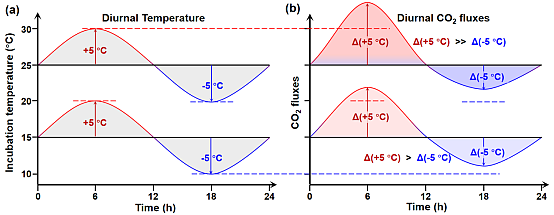
-
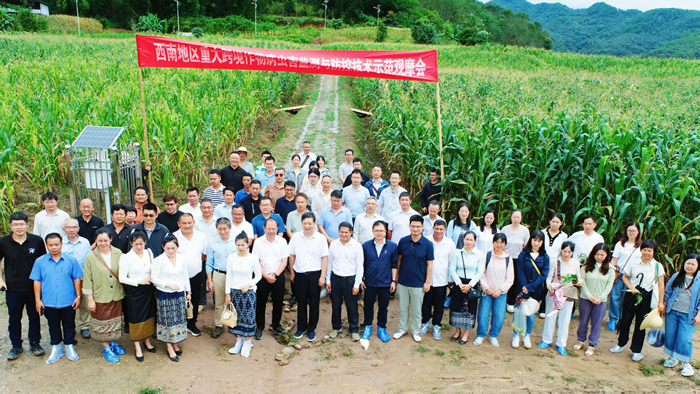 Sep 11, 2025IPPCAAS Advances Joint Prevention and Control of Transboundary Crop Pests and Diseases in Southwest China — Field Demonstration on Monitoring and Control Technologies Held in Jiangcheng, Yunnan
Sep 11, 2025IPPCAAS Advances Joint Prevention and Control of Transboundary Crop Pests and Diseases in Southwest China — Field Demonstration on Monitoring and Control Technologies Held in Jiangcheng, Yunnan -
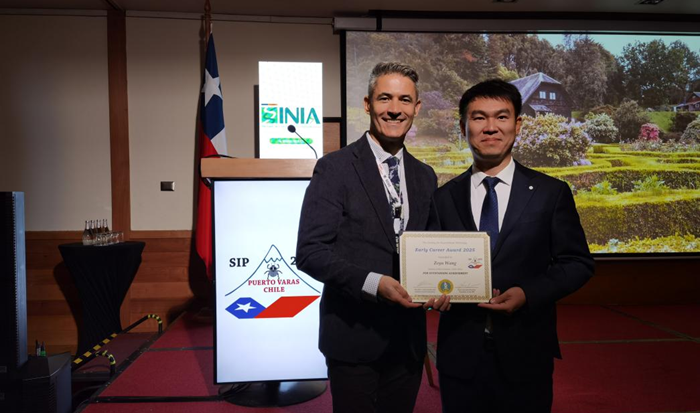 Aug 29, 2025IPPCAAS Expert Wins the Society for Invertebrate Pathology Early Career Award
Aug 29, 2025IPPCAAS Expert Wins the Society for Invertebrate Pathology Early Career Award -
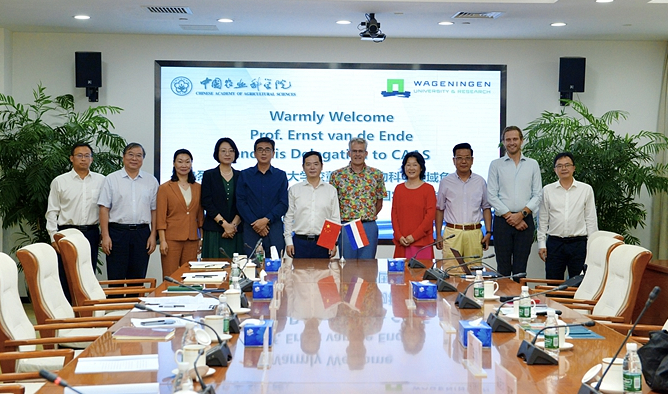 Jul 09, 2025CAAS President meets with WUR Executive Board Member
Jul 09, 2025CAAS President meets with WUR Executive Board Member -
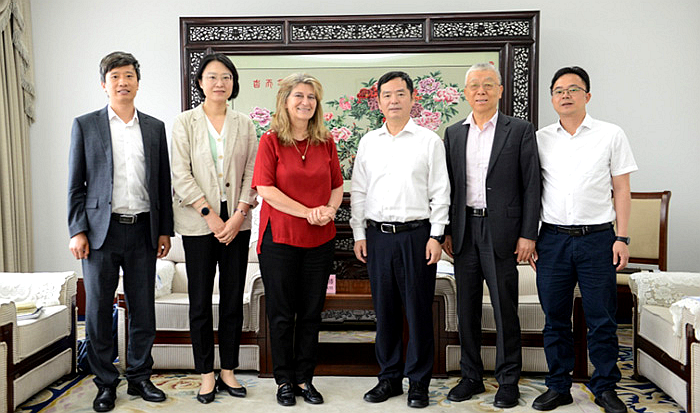 Jul 09, 2025CAAS President Meets with AAS President
Jul 09, 2025CAAS President Meets with AAS President -
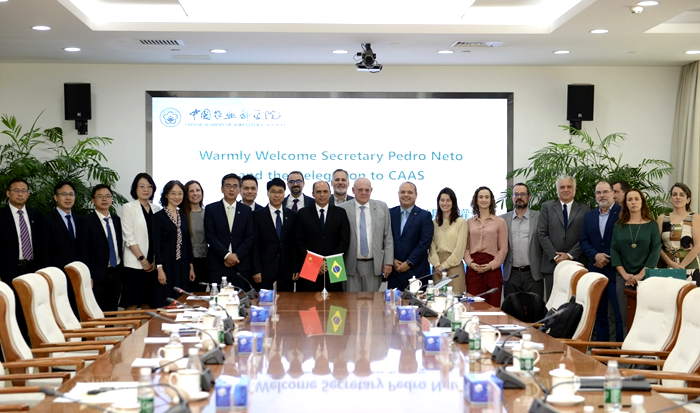 Jul 09, 2025Secretary of the Leadership Party Group of CAAS Meets with Secretary of the Brazilian Ministry of Agriculture and Livestock
Jul 09, 2025Secretary of the Leadership Party Group of CAAS Meets with Secretary of the Brazilian Ministry of Agriculture and Livestock
